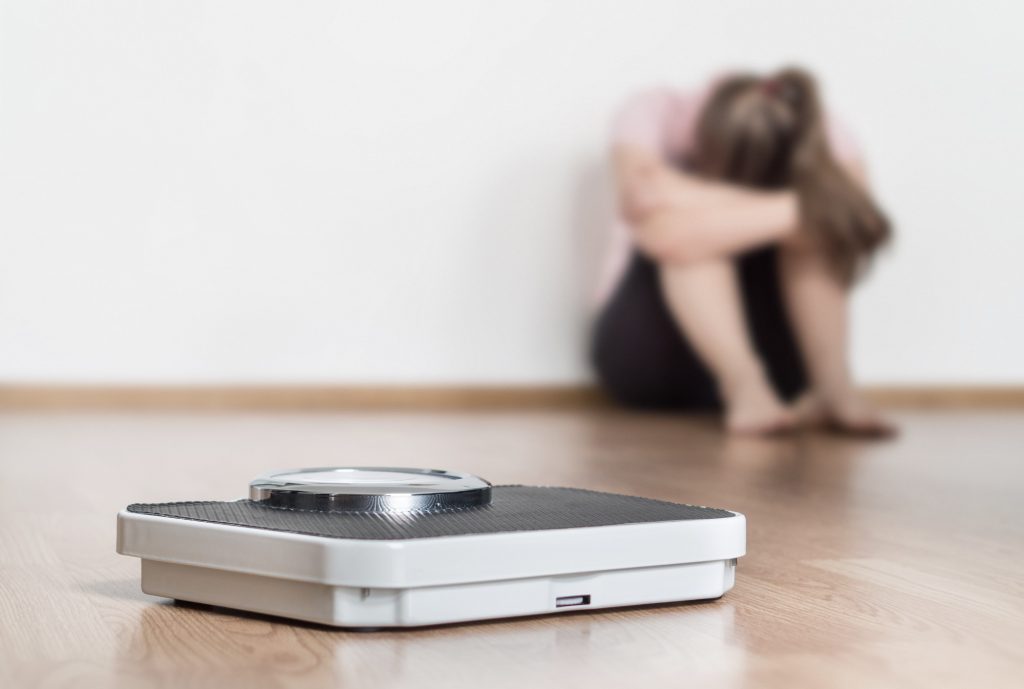A female-centric eating disorder which involves consuming excessive amounts of food and then vomiting it back up, bulimia affects approximately 1.5% of American women. While every living human has the potential to develop bulimia, some individuals are more susceptible to it than others.
Wondering who these individuals are? Curious as to what causes bulimia? Here are 9 risk factors to look out for.
What Causes Bulimia to Occur?
There are a number of different factors which can lead to bulimia. Each person who suffers from the disease suffers for a different reason. However, most of those with the condition have dealt with or continue to deal with one of the following.
1. Traumatic Experiences
One of the most common risk factors for bulimia is traumatic experiences. A traumatic experience can cause a person to turn to food as an escape from reality. When coupled with low self-esteem, this excessive binging of food can lead to purging.
Traumatic experiences include everything from school bullying to domestic abuse to the loss of a loved one and more. If you or someone in your life has or is experiencing such a traumatic event, you must be cognizant of the fact that bulimia is a possibility.
2. Weight Loss Pressure
Perhaps no factor contributes more to the development of bulimia than the pressure to lose weight. Some of the individuals who feel this pressure are inclined to accommodate it by vomiting up the food that they’ve already consumed. Ergo, bulimia is developed.
Weight loss pressure comes from a variety of different sources. In some cases, it’s the pressure to make weight for a wrestling match or other such sporting event. In other cases, it’s societal pressure, an implicit message that one must be thin in order to have value.
Pressure from close family members can have an especially negative effect. Snide remarks and backhanded compliments from mothers and fathers can result in a deep self-consciousness about one’s weight. This can eventually lead to bulimia.
3. Difficult Life Changes
Difficult life changes can also lead to bulimia. These include everything from moving across the country to breaking up with a long-term partner to going away to college and otherwise.
Such a life change can cause a person to turn to food in order to cope. If tied to low self-esteem and concerns over one’s weight, this reckless consumption of food could lead to purging.
4. Genetics
Like many mental illnesses — such as bipolar disorder and schizophrenia — bulimia is believed to be genetically-linked. As such, it tends to run in families. So, if your grandmother, mother, or sister suffers from bulimia, you might just end up suffering from it as well.
Medical researchers have discovered differences with the 1st and 10th chromosomes of those who suffer from the condition. While not all affected individuals will go on to develop bulimia, those who possess these differences will be much more vulnerable to it.
5. Obesity as a Child
Those who were obese as children are typically more prone to bulimia than are others. This is often due to the fact that they were bullied over their weight and feel highly self-conscious because of it.
These individuals might see bulimia as a viable method for eliminating the characteristic (obesity) that brought them such great pain. Note, however, that the psychology behind the phenomenon is often more complex.
6. Co-Morbid Mental Illness
In a great many cases of bulimia, those suffering from it suffer from another mental illness as well. In most of these cases, it’s believed that the other mental illness increases the risk for binging and purging. In other words, some individuals become bulimic as a means of coping with their existing condition.
Conditions which are often tied to bulimia include depression, anxiety, bipolar disorder, and borderline personality disorder, to name just a few. If you or a loved one suffers from one of these conditions, and if there’s also a history of bulimia in the family, you must be ready for it to present itself.
7. Perfectionism
There are a number of personality traits which those with bulimia tend to possess. One of these personality traits is perfectionism. Perfectionists are always striving to do things to the best of their ability, and when they’re not able to, they tend to experience bouts of exceedingly low self-esteem.
As was noted above, low self-esteem is commonly tied to bulimia. Individuals might eat excessive amounts of food in order to cope with their low self-esteem, only to vomit it back up when they remember the ramifications of overeating (ie. weight gain).
8. Impulsiveness
Another personality trait commonly tied to bulimia is impulsiveness. Those who will try anything without a second thought are highly prone to binging and purging, just as they are highly prone to experimenting with a number of other practices (ie. drug use, unprotected sex, etc).
If someone in your life is highly impulsive, he or she could be suffering from an undiagnosed mental illness. In this case, professional psychological help is recommended.
9. Excessive Dieting
One last risk factor for bulimia is excessive dieting. Those who subject themselves to particularly “extreme” diets could ultimately fall prey to binging and purging.
Keep an eye out for diets which limit food consumption to only particular parts of the day. Fasting diets, in particular, have a strong connection with bulimia nervosa.
Looking for a Psychologist in Beverly Hills, Irvine, and Newport Beach?
Now that you know what causes bulimia, you might be cognizant of the fact that you’re at risk. If so, and if you need help staving it off, you would be wise to see a psychologist. A psychologist can help you get to the roots of your problems, allowing you to deal with them in healthy ways as opposed to destructive ones.
Interested in seeing a psychologist in Los Angeles? Blair Wellness Group is the organization to call.
Contact us now to schedule an appointment!















